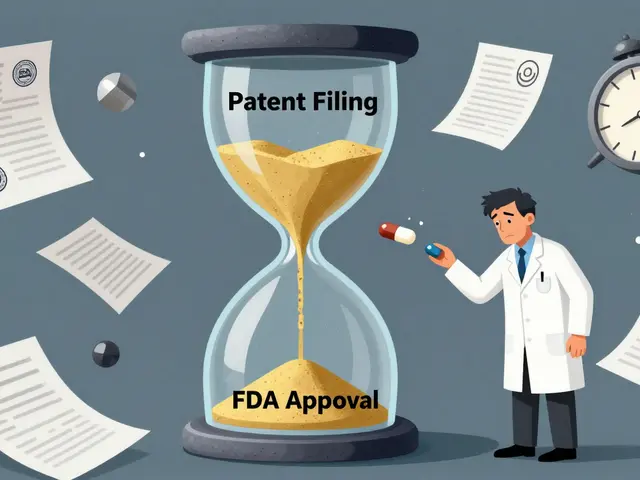Why Eczema in Babies Might Lead to Allergies Later
If your baby has eczema, you’ve probably heard the warning: "They might develop asthma or food allergies next." It sounds scary, and for good reason-many parents see their child’s dry, itchy skin as the first sign of a long chain of health problems. But here’s the truth: eczema doesn’t automatically mean your child will get asthma or peanut allergies. The idea that eczema leads to other allergies in a straight line-the so-called "atopic march"-has been oversimplified for years. New research shows it’s not a guaranteed path. It’s more like a risk map, and where your child lands depends on their skin, their genes, and what you do early on.
The old model said eczema comes first, then food allergies, then asthma, then hay fever. But studies now show that only about 3.1% of children with eczema follow that exact order. Most kids with eczema don’t go on to develop multiple allergies. So why does this myth still stick? Because the link is real for some-just not all. And that’s where skin barrier care becomes your most powerful tool.
How a Broken Skin Barrier Starts the Chain
Your baby’s skin isn’t just soft-it’s a shield. When that shield cracks, tiny openings let in things like dust, pollen, and food proteins. If those substances touch the skin before they’re ever eaten, the immune system doesn’t learn to ignore them. Instead, it sees them as invaders. That’s how a peanut or egg becomes a threat before your child even tastes it.
This isn’t guesswork. Scientists found that babies with eczema often have mutations in a gene called filaggrin. Filaggrin helps hold skin cells together and keeps moisture in. When it’s broken, the skin dries out, flakes, and cracks. These cracks are where allergens slip in. And here’s the kicker: filaggrin mutations don’t cause allergies by themselves. They only increase risk when the skin barrier is already damaged. That means fixing the skin barrier can block the trigger before it starts.
Other genes like TSLP and IL-33 also play a role. These genes control how the immune system reacts to irritants. If your child has variants in these genes, their immune system is more likely to overreact to everyday substances. But again-this only matters if the skin is leaking. That’s why protecting the skin isn’t just about comfort. It’s about stopping an allergic chain reaction before it begins.
The Real Risk: Not All Eczema Is the Same
Not every child with eczema is at equal risk. The biggest predictor of what comes next isn’t the diagnosis-it’s the severity. Kids with mild, occasional dry patches have a low chance of developing asthma or food allergies. But those with severe, widespread eczema that starts early and doesn’t improve with basic care? Their risk jumps by 60% or more. In fact, studies show that 25% of children with severe eczema go on to develop asthma. That’s not a majority. But it’s high enough to warrant attention.
And here’s something surprising: 80% of children with eczema become sensitized to allergens like milk, egg, or dust mites. But only a fraction ever show symptoms. Sensitization means their immune system recognizes the allergen. Clinical allergy means they sneeze, wheeze, or break out in hives after exposure. The difference matters. You don’t need to avoid peanut because a blood test says they’re sensitized. You need to act when the skin is cracked and the child is scratching constantly.
This is why blanket advice like "avoid all allergens" doesn’t work. It’s not helpful-and it might even backfire. The real goal is to identify the 25% who are at real risk and protect them with smart, targeted steps.

How Skin Care Can Actually Prevent Allergies
There’s a growing body of evidence that daily moisturizing from birth can reduce the chance of eczema-and by extension, later allergies-by 20 to 30%. The PreventADALL trial, one of the largest studies on this, tested daily emollient use on newborns with a family history of allergies. The result? Fewer cases of eczema. Fewer sensitizations. And fewer kids developing food allergies later.
It’s not magic. It’s physics. A well-hydrated, intact skin barrier blocks allergens. Think of it like sealing a crack in your house before a storm. You’re not removing the rain-you’re keeping it out.
What works? Simple, fragrance-free moisturizers applied twice a day. Look for ingredients like ceramides, glycerin, and petrolatum. Avoid anything with alcohol, fragrances, or essential oils. Apply right after a lukewarm bath, while the skin is still damp. No need for expensive creams-basic pharmacy brands work just as well.
And here’s the twist: this isn’t just for babies with eczema. If there’s a family history of allergies, starting moisturizing from day one may lower the risk for everyone. The window is narrow-first few months of life-but the payoff is real.
Why Early Food Exposure Matters
If your child has severe eczema, the LEAP study gives you a clear path forward. Researchers found that introducing peanut protein to high-risk infants between 4 and 11 months reduced peanut allergy by 86%. That’s not a small number. It’s life-changing.
This flips the old advice on its head. For years, parents were told to delay allergens. Now we know that delaying them through the skin-while the barrier is broken-might be what causes the allergy. Oral exposure, on the other hand, teaches the immune system to tolerate.
So what does this mean for you? If your child has severe eczema, talk to your doctor about introducing peanut butter (thinned with water or mixed into puree) around 6 months. Do the same for egg, dairy, and other common allergens. Start small. Watch for reactions. But don’t wait until they’re older. The window for tolerance is early.
This doesn’t mean you should start feeding peanut butter to every baby with a little rash. But if the eczema is widespread, persistent, and starts before 3 months? This is your moment to act.
The Gut Connection You Can’t Ignore
Your baby’s skin isn’t the only barrier that matters. Their gut is too. Studies show that infants who later develop multiple allergies often have different gut bacteria-ones that don’t produce enough butyrate, a compound that helps calm the immune system. This isn’t about probiotics from the store. It’s about how your baby’s microbiome develops naturally through birth, breastfeeding, and early diet.
Research suggests that babies born vaginally, breastfed for at least 4-6 months, and introduced to solid foods with fiber-rich vegetables and grains have a better chance of developing a healthy gut ecosystem. Formula-fed babies or those given antibiotics early may have a higher risk of imbalance. That doesn’t mean you’ve failed if your baby was born by C-section or formula-fed. It just means you have more reason to focus on skin care and early food exposure.
The gut-skin connection is real. And while we don’t yet have a pill to fix it, we do know that what you feed your baby-and how you care for their skin-shapes their immune future.

What to Do Now: A Simple Action Plan
- Start moisturizing daily from birth if there’s a family history of eczema, asthma, or allergies. Use a plain, fragrance-free cream or ointment.
- Don’t wait for eczema to appear-if your baby has dry skin, treat it like a warning sign.
- If eczema is severe (widespread, itchy, doesn’t improve with moisturizer), talk to your doctor about early peanut and egg introduction between 4-6 months.
- Avoid harsh soaps and hot baths. Lukewarm water, short baths, and gentle cleansers help preserve the skin barrier.
- Don’t panic over blood tests. Sensitization doesn’t equal allergy. Only act if symptoms appear after eating or touching a food.
- Focus on prevention, not just treatment. Eczema isn’t just a rash-it’s a signal. Fix the barrier, and you might stop the march before it starts.
What Doesn’t Work (And Why)
Many parents try everything: special diets, probiotic supplements, hypoallergenic formulas, organic lotions. But none of these have strong evidence for preventing the atopic march-except two things: daily moisturizing and early food exposure.
Going gluten-free or dairy-free for your baby? Unless they have a diagnosed allergy, it won’t help. In fact, it might increase risk by limiting exposure to healthy foods that build tolerance.
Using essential oils or natural oils like coconut oil on broken skin? Some can irritate further. Stick to proven ingredients: ceramides, petrolatum, glycerin.
Waiting to introduce allergens until age one? That’s outdated. The science now points to 4-11 months as the critical window.
It’s Not About Fear. It’s About Control.
The atopic march isn’t a death sentence. It’s not even a straight line. It’s a set of risks-and you have more power over them than you think. You can’t change your child’s genes. But you can fix their skin. You can’t control every allergen in the environment. But you can control how and when they’re introduced.
The goal isn’t to prevent every sniffle or rash. It’s to protect the children who are most at risk-so they don’t spend their childhood wheezing, itching, or avoiding food because of a fear that wasn’t even real. Skin barrier care isn’t a luxury. It’s the first line of defense. And it’s the one thing every parent can do, right now, with no prescription needed.
Does every child with eczema develop allergies?
No. Only about 25% of children with eczema go on to develop asthma, and even fewer develop multiple allergies. Most kids with mild eczema never have other allergic conditions. The risk is higher with severe, early-onset eczema-but it’s not guaranteed.
Can moisturizing really prevent food allergies?
Yes, in high-risk babies. Studies like PreventADALL show that daily moisturizing from birth can reduce eczema by 20-30%, which in turn lowers the chance of food allergy development. It works by sealing the skin barrier so allergens can’t enter through cracks.
When should I introduce peanut to my baby?
For babies with severe eczema or egg allergy, introduce peanut between 4 and 6 months, after consulting your doctor. For those with mild or no eczema, you can introduce it around 6 months along with other solids. Always start with a small amount and watch for reactions.
Are probiotics helpful for preventing eczema or allergies?
Current evidence doesn’t support using probiotic supplements to prevent eczema or allergies. While gut health matters, the specific strains and timing aren’t well enough understood for supplements to be recommended. Focus instead on breastfeeding, varied diet, and skin barrier care.
What’s the difference between sensitization and allergy?
Sensitization means the immune system recognizes an allergen (shown by blood or skin tests). Allergy means the body reacts with symptoms like hives, vomiting, or wheezing after exposure. Many children are sensitized but never develop symptoms. Only clinical reactions require dietary changes or treatment.
Should I avoid allergens if my baby has eczema?
No. Avoiding allergens through the skin-like letting peanut residue sit on cracked skin-can increase allergy risk. The goal is to expose the gut to allergens early and safely, while keeping the skin barrier intact. Talk to your doctor about how to introduce allergens properly.





Peter Aultman
November 14, 2025 AT 10:11Just started moisturizing my 3-month-old daily after reading this. No eczema yet but both parents had allergies. Feels like the easiest win in parenting I’ve found in months.
gent wood
November 14, 2025 AT 21:51This is one of the clearest breakdowns of the atopic march I’ve ever read. Too many parents panic over blood tests or avoid peanuts out of fear, when the real issue is skin integrity. The PreventADALL data is solid-20-30% reduction isn’t trivial. And yes, petrolatum works better than that $40 organic balm with lavender. Keep it simple.
Kevin Wagner
November 16, 2025 AT 07:51Let me tell you something-this isn’t just science, it’s liberation. For years I was told to keep my kid away from everything: eggs, peanuts, dairy, dust, pets, grass. I felt like a prisoner in my own home. Then I learned: seal the skin, feed the gut, introduce the allergens. And guess what? My son ate peanut butter at 5 months. No reaction. No anxiety. No guilt. He’s 2 now and runs around like a tornado with zero allergies. This isn’t theory-it’s freedom.
Dilip Patel
November 17, 2025 AT 00:59lol u think moisturizing stops allergies? my cousin in delhi his kid got eczema n ate peanuts at 3 months n still got allergic. u dont know shit about india. its not just skin its genetics n pollution n ur stupid american diet. u think ceramides fix everything? lolol
Jane Johnson
November 18, 2025 AT 23:39While the intent behind early allergen introduction is commendable, the assumption that skin barrier repair alone can alter immune trajectory lacks longitudinal validation. The confounding variables-maternal microbiome, antibiotic exposure, socioeconomic determinants-are rarely accounted for in these studies. One cannot reduce complex immunological development to topical applications alone.
Joe Goodrow
November 20, 2025 AT 23:33They want us to believe that slathering baby in Vaseline will stop allergies? What’s next? Wearing tin foil hats to block pollen? This is woke medicine at its finest. Real science doesn’t rely on moisturizers-it relies on strong immune systems built through exposure, not isolation. If your kid gets allergies, tough. That’s nature. Stop trying to engineer perfect children.
Don Ablett
November 22, 2025 AT 14:57Interesting that the filaggrin mutation prevalence varies significantly across populations. In East Asian cohorts the allele frequency is higher than in Europeans yet the incidence of peanut allergy is lower. This suggests environmental factors such as diet composition or microbial exposure may modulate genetic risk. I wonder if the moisturizing effect is more pronounced in low-humidity climates or if it’s universally protective. Also curious why the LEAP study excluded infants with severe eczema and egg allergy at baseline-was that a selection bias?
Nathan Hsu
November 24, 2025 AT 13:43So, you’re saying I don’t need to panic because my kid has dry skin? I’ve been using coconut oil because my mom said it’s natural, but now I’m reading this and I think I’ve been doing it wrong. I’ll switch to petrolatum. And I’m introducing peanut butter next week-after I call the pediatrician. Thank you for this. I feel less like I’m failing and more like I’m doing something real.